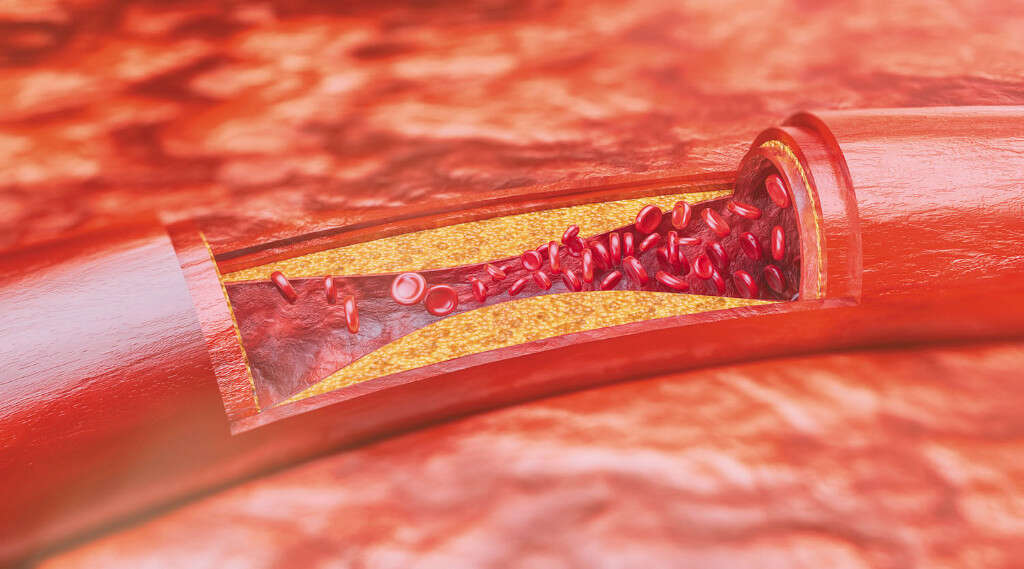10 Causes of Heart Attacks
A heart attack is a serious and life-threatening condition that requires urgent medical care. It is characterized by the death of the heart muscle, which is caused by the loss of the normal blood supply to that particular part of the heart.
Usually, the heart muscle does not get the necessary amount of oxygen due to a blood clot that blocks the artery supply.
Chest pain and chest discomfort are very common symptoms of a heart attack, accompanied by dizziness, shortness of breath, restlessness, excessive sweating, coughing, nausea, and vomiting. Here are the 10 most common causes of a heart attack.
Cause #1: Age
With age, the risk of getting a disease increases, including a heart attack. Even though a heart attack can affect anyone at any age, it usually occurs in those over the age of 50 years old.
In men, the risk is higher over the age of 45 years old, while in women the risk is higher over the age of 55 years old. However, heart attacks in people in their 20s or 30s have also been reported.
Cause #2: Hypertension
One of the common causes or predisposition factors that can lead to a heart attack is hypertension. The number of people affected by hypertension is increasing worldwide. It affects both genders and what is more concerning is the fact that every day more and more young people are having problems with high blood pressure. Today’s lifestyle, unhealthy diet, sedentary life, and stress are all contributing factors to the development of hypertension.
A higher blood pressure circulating in the cardiovascular system will end up damaging the blood vessels, which can get blocked at some point in life, leading to a heart attack.

Cause #3: Diabetes
The number of diabetic people worldwide is increasing. Diabetes is a medical condition characterized by high levels of sugar in the blood. When the blood sugar levels remain higher constantly, certain damages to the body’s tissues and organs will take place. There is no tissue or body organ that is not damaged by high sugar levels in the blood.
If you want to prevent possible complications related to diabetes, you should aim to maintain your blood sugar levels. Certain medications or insulin injections can help, but a complete change in your lifestyle is also very important. You should lead an active life, avoid stress, and you should pay good attention to the foods that you eat as diet has a great impact on your blood sugar levels.
Cause #4: Atherosclerosis
Atherosclerosis is characterized by a buildup of plaques inside the arteries. These atherosclerotic plaques are made up of fat, cholesterol, calcium, and many other substances. Every blood vessel in the body can get atherosclerotic. Over time, atherosclerotic plaques get hard and narrow the arteries, which of course will impair the normal blood flow to the body tissues and organs.
If atherosclerosis affects the coronary arteries, the normal blood supply to the heart muscle will be impaired. This means that if the lumen of the coronary arteries get blocked over 70% or if they get totally blocked, a heart attack develops.

Cause #5: High Cholesterol Levels
The human body needs cholesterol to build healthy cells, but high cholesterol levels are not good for your health as it increases the risk of heart diseases, including heart attack.
High cholesterol levels will lead to the development of fatty deposits in the blood vessels, otherwise known as atherosclerotic plaques. As mentioned, atherosclerotic plaques over time will make the blood vessels narrower, impairing the normal blood flow and oxygenation of body tissues and organs. In this case, they will impair the normal blood flow and oxygenation of the heart muscle.
Cause #6: Angina Pectoris
Angina pectoris results from myocardial ischema due to an imbalance between blood supply and the oxygen demand of the heart muscle. It is characterized by temporary chest pain and discomfort. Angina pectoris is not a heart attack but it does not mean that it will not progress into a heart attack.
There are two types of angina pectoris: stable angina pectoris, and non-stable angina pectoris. Stable angina pectoris is characterized by chest pain and discomfort occurring due to a certain activity and those who suffer it know what causes this chest pain and discomfort and how to manage it. However, if chest pain and discomfort occur due to the slightest physical activity or if the medications that have helped so far to control the pain no longer relieve it then stable angina pectoris has progressed to non-stable angina pectoris. This can further progress to a heart attack if necrosis of the heart muscle develops.

Cause #7: Smoking
Smoking is one cause of a heart attack. The carbon monoxide in tobacco smoke reduces the normal amount of oxygen in the blood, which means that the heart muscle and all the other body tissues and organs will receive blood that is less oxygenated than it should be.
Smoking also damages the inner lining of the arteries, leading to a buildup of fatty minerals and the formation of atherosclerotic plaques that will narrow the arteries, increasing the odds of having a heart attack. If you are a smoker, a wise thing to do is to quit smoking immediately.
Cause #8: Obesity
Being overweight has a negative impact on your body. Excessive body weight puts an unnecessary strain on the heart. Also, those who are overweight or obese tend to lead an unhealthy life, which means they usually eat too many unhealthy foods and spend a lot of time sitting.
Being overweight or obese also increases the risk for diabetes, hypertension, and high cholesterol levels, which are all contributing factors for heart diseases and for a heart attack as well.

Cause #9: Stress
Persistent and chronic stress exposes the body to persistently higher levels of adrenalin and cortisol, which are otherwise known as stress hormones. Stress also increases the risk for other heart attack causes such as high blood pressure, high cholesterol levels, physical inactivity, overeating, smoking, alcohol abuse, and drug abuse.
Maintaining a positive attitude, avoiding drug or alcohol abuse, not smoking, not drinking too much coffee, eating healthy, maintaining a balanced body weight, leading an active life, and especially relaxing every now and then are very helpful for relieving stress. Even though avoiding stress completely is impossible with the life that we all lead today, reading a good book, going for a walk, listening to music, doing yoga, or whatever else you prefer can help you relax after a long and stressful day at work.
Cause #10: Previous Heart Attack
Those who have had a heart attack in the past will have a higher risk for another heart attack. If you have survived a heart attack in the past, you should try to reduce the risk of having another heart attack in the future by completely changing your life.
The risk is higher during the first couple of weeks after the first heart attack, but you should know that you could have another heart attack at any time later on in life.









